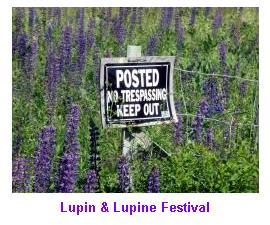Complying with the CAN SPAM Act
Most Popular Articles
Littleton Downtown Riverwalk
Enjoying Mt. Washington
Franklin's Lesson For Today
NH Helicopter Rides
FREE Stuff To Do
NH Lupine Photos
Avoiding Romance Scams
Pittsburg NH Profile
Mascoma Lake Profile
Farm To Table Restaurants
Carroll NH (Twin Mtn.) Profile
Colebrook NH Profile
Ben Kilham Profile
Whitefield NH Profile
Clark's Trading Post
NH Business Articles: Complying with the CAN SPAM Act
Complying with the CAN SPAM Act
What you need to know to comply with the law!
What you need to know to comply with the law!
It's tempting to do marketing by email - It's fast, cheap and sometimes quite successful. Done correctly, with your existing client base, is a great idea. Done with a list of random prospects, might be a good idea, but it can be tricky, and expensive IF you run afoul of the rules. Large Internet backbone conduits like Verizon, are doing everything in their power to thwart unsolicited email. Violations can cause them to blacklist your web site making it unavailable to their millions of users, not to mention the FTC fine, per individual email disbursed. If you choose to do it, do it right!
The CAN SPAM Act has many simple requirements. Let's review the ones that are often overlooked and some other common mistakes.
All email compliance is your responsibility. It doesn't matter if you are using a contractor, firm, service or your Aunt Harriet. If it's done on your behalf, it's your responsibility and you can be fined if it's done wrong!
Subject lines must be honest and transparently an ad. If you are trying to sell new home furnaces or chimney sweeping services, a subject line like "228,000 Homes will experience a chimney or furnace fire this winter" would be a violation, even if it's true.
Your email must disclose the LEGAL, registered name of the business. Using a domain name as the sending party does not meet the requirements of the law unless it's also your state registered business name. If you only operate an unregistered business (i.e. using no business name,) then you must disclose YOUR legal name.
Your email must disclose a complete mailing or physical address of the business. A US Post Office box is satisfactory, but the advertiser must be fully disclosed. Include your legal (business) name and complete address.
You may NOT use any electronic tool or methodology to disguise the mailing address or transmission route of the sender. No bogus email addresses, no forwarding mechanics.
You must include genuine 'opt out' instructions. It doesn't matter if it's a one time mailing or they'll never hear from you again.
Be sure you can document each claim made. Just think of their attorney's smile: they have it in writing, and you can't prove it: how much easier could it be to sue?
For a full explanation, visit the Federal Trade Commission's admonitions about the CAN SPAM Act at: http://www.business.ftc.gov/documents/bus61-can-spam-act-compliance-guide-business .

George C. Jobel does web development and SEO consulting and has been helping clients develop successful online & multimedia marketing strategies since 1995. The author of numerous articles and online publications, George has taught web development and marketing classes since 2000. You can reach him at his web site , or 603.491.4340 .
Scheduled Events
Seussical (9/6-15)
2001 Space Odyssey (9/7)
Muster in the Mountains (9/7-9)
Wingzilla (9/8)
Canzoniere Grecanico Salentino (9/9)
Things [Mom] Taught Me (9/13-23)
Reach the Beach (9/14-15)
WM Storytelling Festival (9/14-16)
Metallak Race (9/15)
Mandeville & Richards (9/15)
Cohase Film Slam (9/16)
Tricycle Grand Prix (9/16)
Rodney Crowell (9/21)
NH Highland Games (9/21-23)
Don Who (9/22)
Harvest Celebration (9/22)
Health & Wellness Fair (9/22)
Jeep Invasion (9/22)
Lakes Region Tri Festival (9/22-23)
Pat Metheny (9/26)
Driving Miss Daisy (9/27 - 10/6)
Neko Case (9/27)
Shot of JD (9/28)
Dixville Half Marathon (9/29)
New Hampshire Marathon (9/29)
Matthew Odell (9/30)
Lincoln Fall Craft Festival (10/6&7)
Sparrow Blue & Crowes Pasture (10/6)
Oktoberfest (10/6-7)
White Mountain Oktoberfest (10/6-7)
Fall Foliage Celebration (10/6-8)
Sandwich Fair (10/6-8)
Paddle the Border (10/7)
Lincoln Fall Craft Festival (10/7-9)
Shadow Play (10/10)
Killer Joe (10/11-21)
Greg Brown (10/12)
Camping & RV Show (10/12-14)
Riverfire & Horrorfest (10/13)
Jay Stollman Band (10/19)
Murder Dinner Train (10/19-20)
Pumpkin Patch Express (10/19-21)
All Things Pumpkin (10/20)
Ethan Setiawan Band (10/20)
Bettye LaVette (10/26)
Murder Dinner Train (10/26-27)
Pumpkin Patch Express (10/26-28)
Berlin Jazz (10/27)
Photo Galleries





Quick Links
Business Directory
Androscoggin Valley Hospital
Moffett House Museum
Northland Restaurant
Perras Treasures Party Store
Personal Touch Home Health
White Mountain Cottages
Moffett House Museum
Northland Restaurant
Perras Treasures Party Store
Personal Touch Home Health
White Mountain Cottages
more ►
Attractions
Cannon Arial Tram
Conway Scenic Railroad
Jericho Mountain ATV Park
Kancamagus Highway
WoodstockInn& Brewery
25 Great Summer Adventures
Farm To Table Restaurants
Hiking To Crash Sites
Little Ski Areas
Local Movie Theaters
Local Performance Theaters
Moose Tours
Conway Scenic Railroad
Jericho Mountain ATV Park
Kancamagus Highway
WoodstockInn& Brewery
more ►
Community Profiles
Bethlehem
Bretton Woods
Colebrook
Conway
Franconia
Gorham
Hanover
Jackson
Lebanon
Lincoln
Littleton
North Conway
Pittsburg
Plymouth
Twin Mountain
Whitefield
Wolfeboro
more ►
Recreation and Tourism
Farm To Table Restaurants
Hiking To Crash Sites
Little Ski Areas
Local Movie Theaters
Local Performance Theaters
Moose Tours
more ►
Other Resources
NH Census Info
NH Data (OEP)
NH Fishing Reports
NH Foliage Report
NH Lottery
NH Movie Guide
NH Ski Reports
NH Snowmobile Trail Reports
NH State Parks
NH Hiking Trail Conditions
NH Road Conditions
NH Weather
White Mtn. National Forest
VisitNH.Gov
Copyright 2012-2018 by George C. Jobel , 603-491-4340. All Rights Reserved.





















